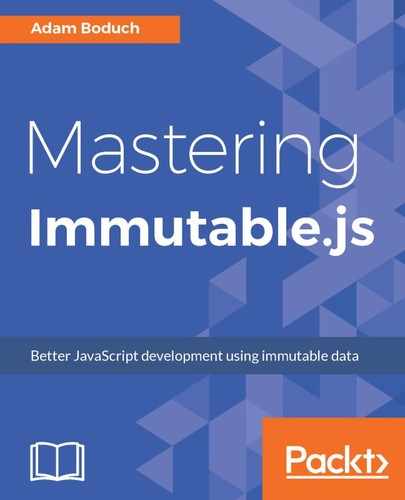The challenge with the preceding approach is that the collections that we're concatenating together could actually be indexed sequences, capable of evaluating lazily. If you concatenate them into a list, then you lose any benefit to lazy evaluation. Instead, you can call the concat() method on a sequence:
const mySeq1 = Range(1, 6)
.filterNot((v) => {
console.log('mySeq1', v);
return v % 2;
});
const mySeq2 = Range(6, 11)
.filterNot((v) => {
console.log('mySeq2', v);
return v % 2;
});
Seq()
.concat(mySeq1, mySeq2)
.forEach(v => console.log('result', v));
// -> mySeq1 1
// -> mySeq1 2
// -> result 2
// -> mySeq1 3
// -> mySeq1 4
// -> result 4
// -> mySeq1 5
// -> mySeq2 6
// -> result 6
// -> mySeq2 7
// -> mySeq2 8
// -> result 8
// -> mySeq2 9
// -> mySeq2 10
// -> result 10
Using this approach, you can lazily concatenate sequence values together as the forEach() side-effect iterates over the result. You can see how lazy evaluation works in the preceding example from the logging added in the filterNot() predicates.
